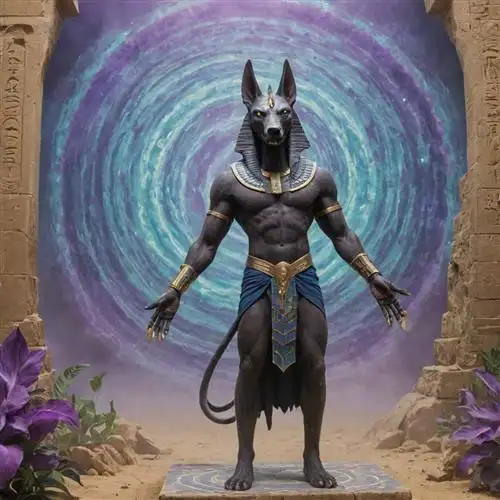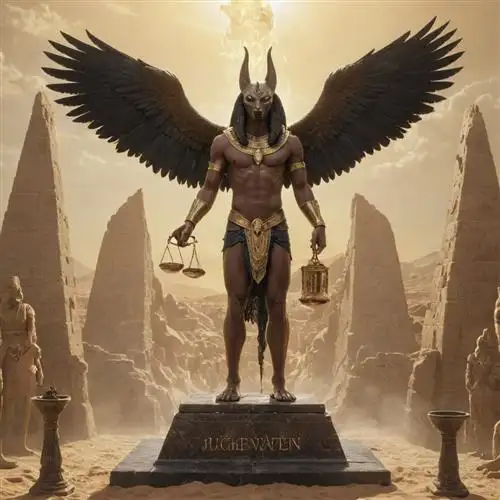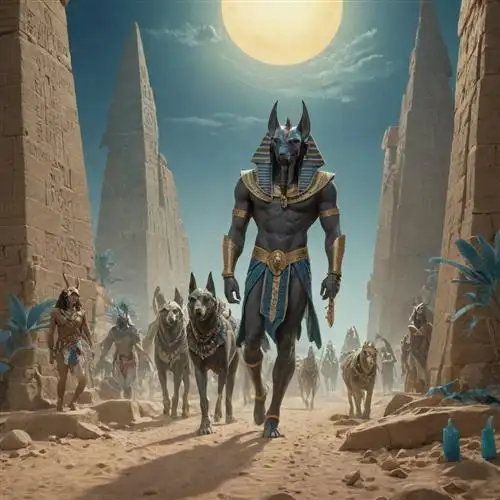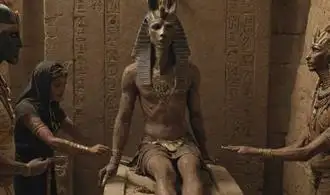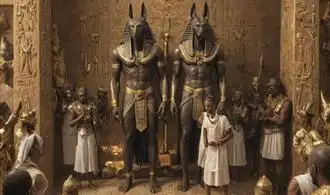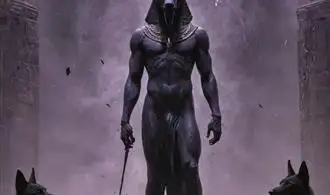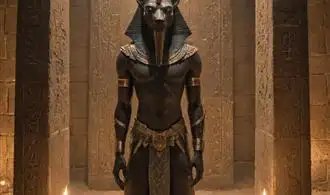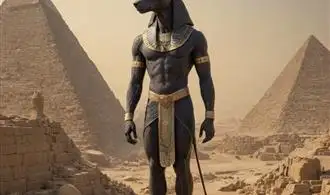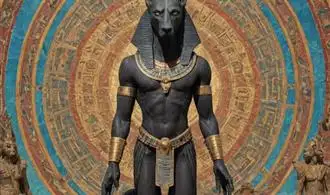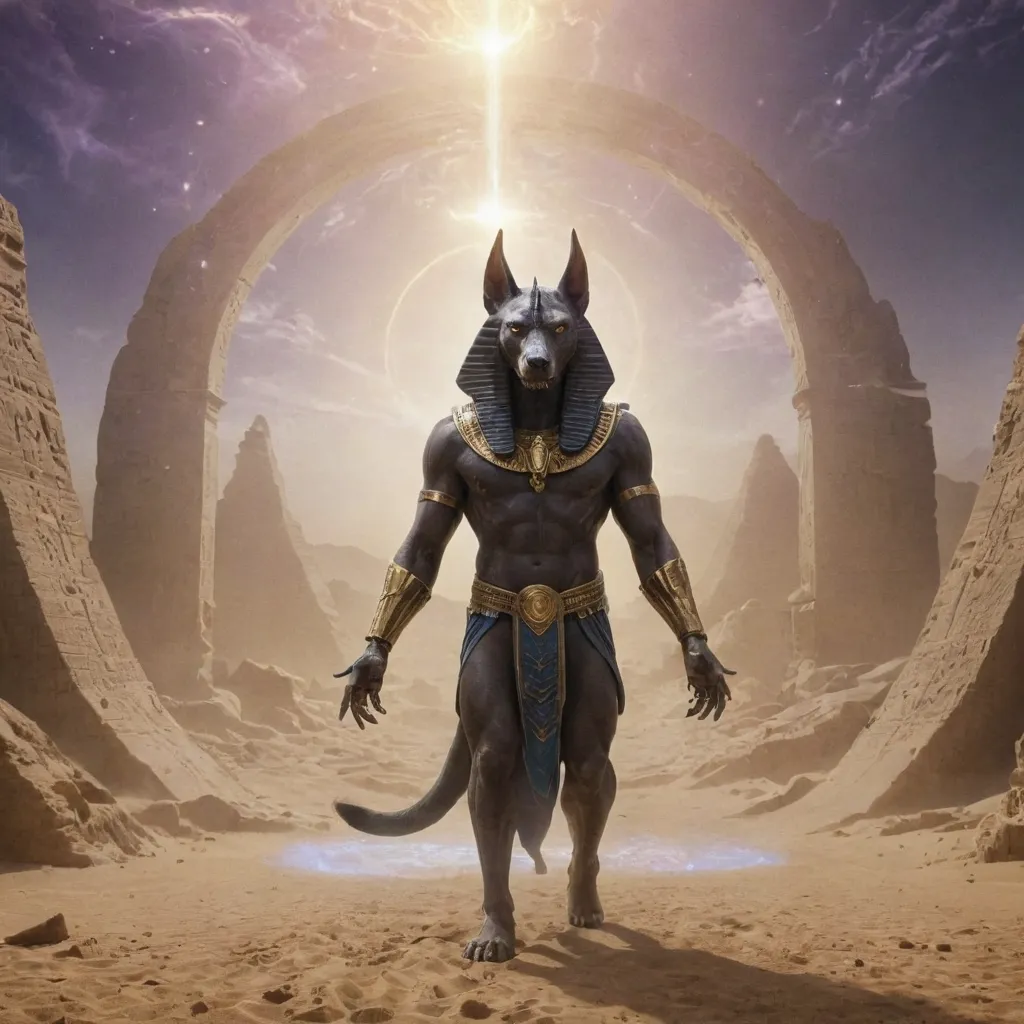
Anubis The Guardian of the Dead
Anubis, the jackal-headed Egyptian deity, has long been revered as the Guardian of the Dead, a powerful figure who guides the souls of the departed through the treacherous journey of the afterlife. As a central figure in the ancient Egyptian pantheon, Anubis' role was pivotal in the process of mummification and the transition from the mortal realm to the eternal realm.
At the heart of Anubis' duties was the weighing of the heart ceremony, a critical step in the judgment of the deceased. In this ritual, the heart of the deceased was placed on one side of a scale, while the feather of Ma'at, the goddess of truth and justice, was placed on the other. If the heart balanced with the feather, the individual was deemed worthy of passing into the afterlife. However, if the heart was heavier, it was devoured by the monstrous Ammit, consigning the soul to oblivion.
Anubis' presence was not limited to the judgment of the dead, as he also played a crucial role in the mummification process. As the god of embalming, Anubis oversaw the meticulous preparation of the body, ensuring the preservation of the physical form and the smooth transition of the soul to the afterlife. This intricate process, which involved the removal of organs, the application of various resins and oils, and the wrapping of the body in linen, was a testament to the Egyptians' deep reverence for the afterlife and their belief in the continuity of existence beyond the mortal realm.
The Scales of Judgment
In the intricate realm of ancient Egyptian mythology, the figure of Anubis stands as a pivotal guardian of the afterlife. As the jackal-headed deity responsible for the embalming process and the weighing of the soul, Anubis plays a critical role in the journey of the deceased through the Duat, the Egyptian underworld.
The Scales of Judgment, a central aspect of this mystical passage, represent the profound significance of Anubis's role. During this solemn ritual, the heart of the deceased is weighed against the feather of Maat, the goddess of truth and justice. This symbolic act determines the fate of the soul, as a heart that is found to be lighter than the feather signifies a life lived in harmony with the divine order, allowing the individual to progress to the afterlife. Conversely, a heart that is heavier than the feather is deemed unworthy, condemning the soul to eternal damnation.
The importance of this judgment cannot be overstated, as it represents the culmination of one's earthly existence and the fulfillment of their eternal destiny. Anubis, as the overseer of this process, is revered for his objectivity, fairness, and unwavering adherence to the principles of truth and justice. His presence in the afterlife serves as a constant reminder to the living of the importance of leading a virtuous and balanced life, one that aligns with the divine order and the precepts of Maat.
For those seeking guidance and solace in the face of life's challenges, Anubis and the Scales of Judgment offer a powerful metaphor for the pursuit of personal growth and the attainment of inner peace. By embracing the principles of truth, justice, and balance, individuals can strive to align their hearts and actions with the divine, ultimately ensuring a seamless transition to the next phase of their eternal journey.
Anubis and the Journey to the Afterlife
Anubis, the ancient Egyptian god of the afterlife, holds a crucial role in the journey to the great beyond. As the ferryman and guide of the dead, Anubis is responsible for escorting the deceased through the treacherous trials that await them in the afterlife. The importance of this journey cannot be overstated, as it determines the ultimate fate of the soul.
Central to the role of Anubis is the process of mummification, which was believed to be essential for the preservation of the physical body. By carefully embalming the deceased, Anubis ensured that the soul had a suitable vessel to return to upon completion of the afterlife journey. This meticulous process was not only a means of honoring the dead but also a crucial step in the individual's transition to the next world.
The journey to the afterlife was fraught with challenges, and Anubis was there to guide the departed through each step. One of the most significant rites was the weighing of the heart, a process in which the deceased's heart was weighed against the feather of truth. This determined whether the individual had lived a righteous life, worthy of eternal peace in the afterlife. Anubis, as the overseer of this ceremony, played a vital role in evaluating the soul and deciding its fate.
In addition to the weighing of the heart, Anubis also protected the deceased from the dangers that lurked in the afterlife. He was believed to ward off evil spirits and guide the soul through the treacherous underworld, ensuring a safe passage to the realm of the gods. This protective role was crucial for the individual's successful transition and ultimate reunification with the divine.
The The FOMO with Anubis and the Afterlife explores the concept of fear and anxiety that may arise in the face of the unknown afterlife, and how Anubis can help alleviate these concerns. By understanding Anubis's role as a guide and protector, individuals can find solace in the belief that they are not alone in their journey to the great beyond.
Rituals and Symbolism of Anubis
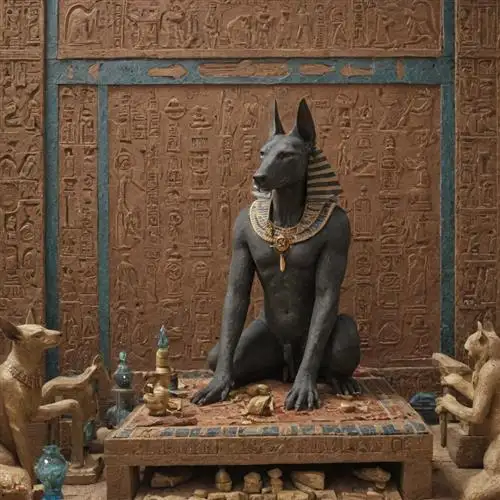
Anubis, the Egyptian god of death and the afterlife, is a central figure in many ancient rituals and symbolic traditions. As the guardian of the dead and the embalmer of the deceased, Anubis played a crucial role in the journey of the soul from the physical world to the realm of the afterlife. Understanding the rituals and symbolism associated with Anubis can provide valuable insights into the ancient Egyptian beliefs and practices surrounding death and the afterlife.
One of the most significant rituals associated with Anubis is the mummification process. As the god who oversaw the embalming of the dead, Anubis was believed to ensure the preservation of the body and the successful transition of the soul to the afterlife. The process of mummification was a highly complex and intricate ritual, involving the removal of the internal organs, the drying of the body, and the wrapping of the remains in linen bandages. Throughout this process, Anubis was invoked and honored, with specific prayers and offerings made to ensure the protection and guidance of the deceased.
Anubis was also closely associated with the weighing of the heart ceremony, a critical ritual in the ancient Egyptian concept of the afterlife. During this ceremony, the heart of the deceased was weighed against the feather of Ma'at, the goddess of truth and justice. If the heart was found to be pure and without sin, the soul was granted passage to the afterlife. Anubis was believed to be the presiding deity over this ceremony, ensuring the fairness and accuracy of the weighing process.
In addition to his role in the mummification and weighing of the heart rituals, Anubis was also represented in various symbolic forms throughout ancient Egyptian art and iconography. The most common depiction of Anubis is as a jackal-headed deity, with the jackal being a symbolic representation of the god's role as a guardian of the dead. Anubis was also sometimes shown as a black jackal or a black dog, both of which were associated with the color black and the realm of the afterlife.
The symbols and rituals associated with Anubis were not limited to the realm of the dead, however. Anubis was also invoked in various healing and protective rituals, as the god was believed to possess the power to guide the living through difficult and challenging times. Amulets and talismans depicting Anubis were often worn or carried by individuals seeking protection, healing, or guidance in their everyday lives.
Unlocking the Secrets of the Afterlife with Anubis

Anubis, the ancient Egyptian deity associated with the afterlife, holds the key to unraveling the mysteries that lie beyond the physical realm. As the god of embalming and the protector of the dead, Anubis offers a profound understanding of the transition from this life to the next, guiding the deceased through the intricate journey of the afterlife.
At the heart of Anubis' role is the process of mummification, a sacred ritual that ensured the preservation of the physical body. This meticulous practice not only served to honor the deceased but also played a crucial role in the individual's journey to the afterlife. By preserving the physical form, Anubis facilitated the reunion of the body, soul, and spirit, allowing the deceased to maintain their identity and continue their existence in the realm of the dead.
Beyond the physical aspect, Anubis is also revered as the guardian of the weighing of the heart ceremony, a pivotal moment in the afterlife journey. During this ritual, the deceased's heart was weighed against the feather of truth, symbolizing the judgment of their actions and the determination of their worthiness to enter the afterlife. Anubis, as the presiding deity, ensured the fairness and integrity of this process, guiding the soul towards its eternal destination.
The connection between Anubis and the afterlife extends beyond the traditional burial rites. The god's association with the afterlife also encompasses the concept of transformation and rebirth. Anubis is believed to possess the power to facilitate the transition from the physical world to the realm of the dead, guiding the soul through the challenges and obstacles that may arise during this transformative journey.

